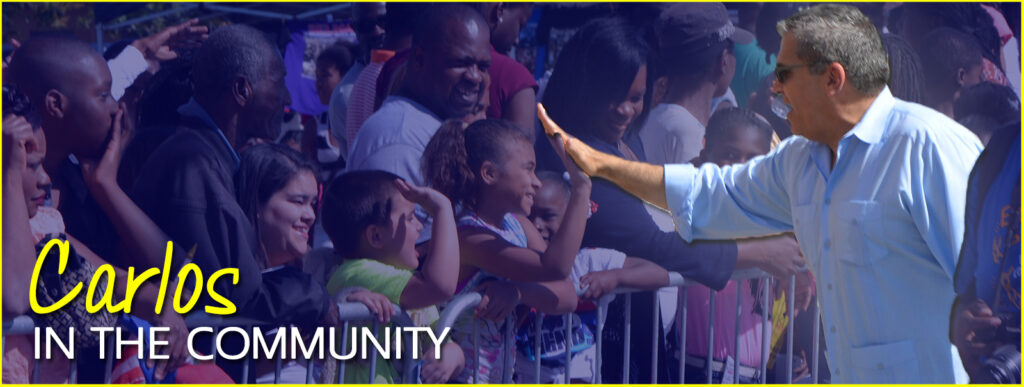
Play it Smart
(Teaching Kids to Effectively Interact with Police)
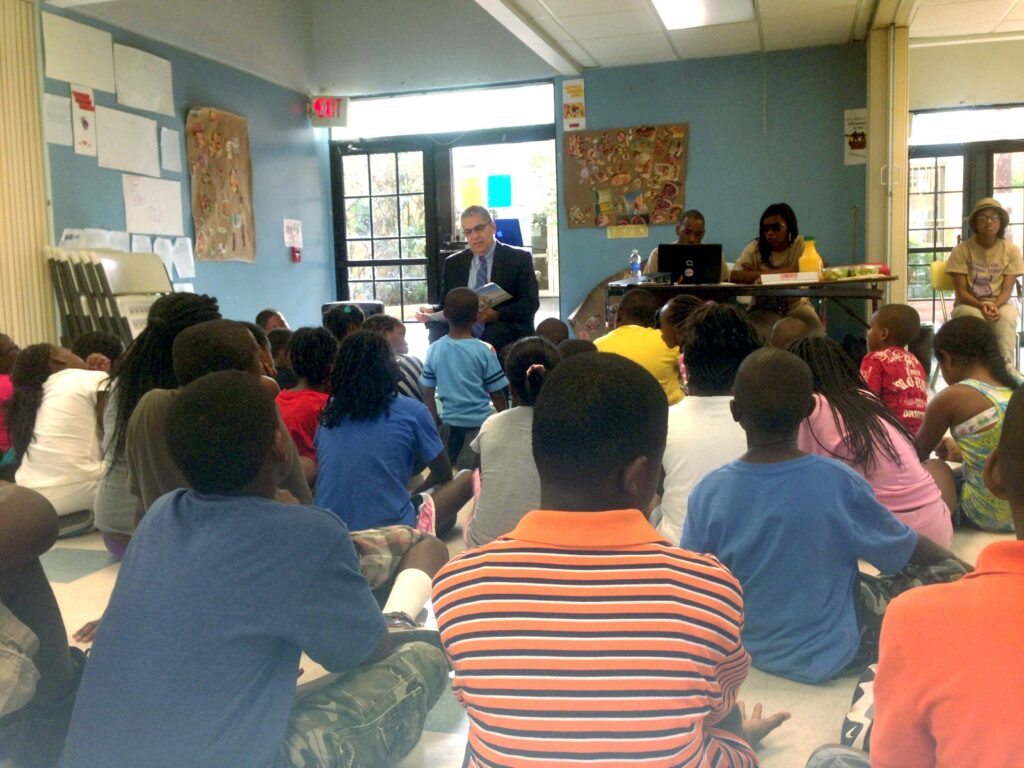
Carlos Martinez designed Play it Smart to teach children about their rights and how to effectively interact with police. Through lectures, skits and role playing, children learn about their constitutional rights and how to behave so that an officer feels that the young person does not present a physical threat. Because teens often become entangled with the juvenile justice system after an encounter with the police which turned into a bad situation for both the teen and the officer, the objectives of the educational program are to:
- Educate young people about their rights and responsibilities during encounters with law enforcement.
- Help promote public safety.
- Safeguard individual rights.
- Prevent avoidable conflicts and arrests.
- Reduce the need for use of force by police officers.
- Foster respect between young people and law enforcement.
Carlos personally conducted Play it Smart workshops with other volunteers for the 5000 Role Models of Excellence Program, private and public middle schools and high schools.
As your Public Defender, Carlos will continue to work hard with schools and civic groups to teach children how to stay out of trouble and increase dialogue between them and law enforcement.
The Consequences Aren’t Minor
(Teaching Kids and Parents the Consequences of Illegal Activity, Arrest, Plea, Conviction or Adjudication)
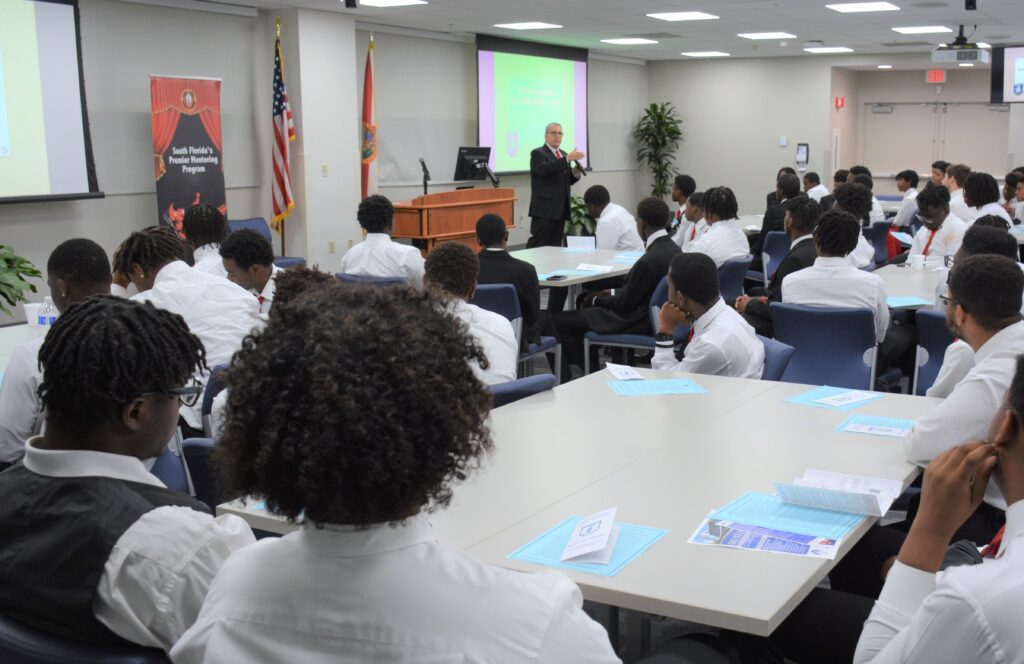
Carlos Martinez designed The Consequences Aren’t Minor, an interactive program, to educate the public about the serious consequences of an arrest and involvement with the criminal and juvenile justice systems. Carlos is respected locally, statewide and nationally as a tireless advocate for Florida’s children ensnared in the juvenile justice system and returning citizens who want to be productive, law abiding citizens.
The goals of The Consequences Aren’t Minor are to reduce delinquent behavior by
- Educating parents so they can prevent their children from engaging in delinquent behavior
- Educating children to keep them from engaging in delinquent behavior
- Educating legislators so they can fix the draconian and ineffective laws that make it easier for kids to get a job from a drug dealer than from a car dealer
- Educating the general public so they will demand legal reform
- Dispelling myths about juvenile court being a slap on the wrist
Carlos has educated several thousand students through his Consequences Aren’t Minor sessions. In 2018, Carlos partnered with Miami-Dade County Public Schools to conduct presentations at middle and high schools. Carlos regularly educates Miami-Dade Police Department recruits about the consequences of an arrest.
Carlos continues to work with schools, the faith community and civic groups to teach young people how to stay out of trouble. Carlos will continue to diligently work to reform laws so formerly convicted persons can lead law-abiding lives.
Redemption Project
(Helping Formerly Convicted Lead Law Abiding Lives)
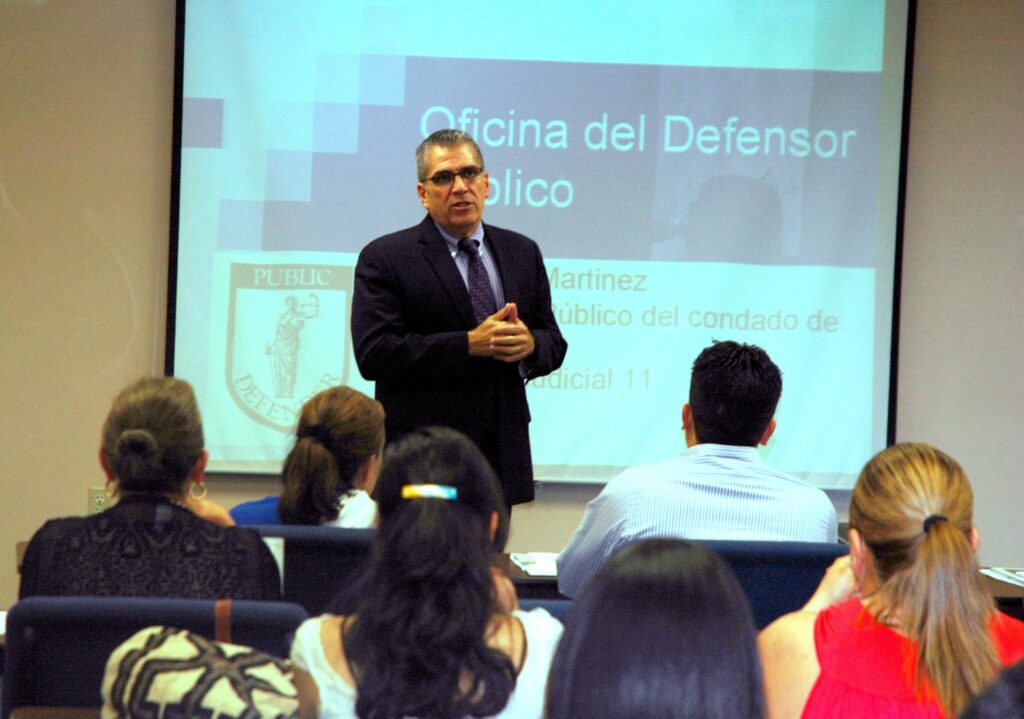
Carlos Martinez created the Public Defender’s Redemption Project (Redemption) in 1998 with government and community organizations. Redemption is an all-volunteer effort to overcome legal obstacles to employment for returning citizens (people with prior criminal justice involvement). Redemption volunteers assist with sealing and expunging criminal records, employment, and applications for restoration of civil rights. Recently, Redemption volunteers help individuals with voting rights restoration after passage of Amendment 4.
In the past 20 years, volunteers from the Public Defender’s Office and community groups have assisted more than 6,000 people across Miami-Dade County, through Redemption workshops held at community centers and churches. Success has been possible due to the participation of the State Attorney’s Office, the Clerk’s Office, elected officials, Miami Dade Weed and Seed, the faith community, civic leaders, Dade County Bar Association’s Pro Bono Project, League of Women Voters of Dade County, Florida International University Law School, University of Miami School of Law, St. Thomas Law School, Miami-Dade NAACP, ACLU of Florida, Circle of Brotherhood, Haitian Lawyers Association, Gwen S. Cherry Black Women Lawyers Bar Association, the Wilkie D. Ferguson, Jr. Bar Association and other groups.
Carlos has been on the front lines, not just by creating the Redemption Project, but by being personally involved in the workshops that have assisted thousands of people in the past 20 years. Carlos was an early supporter of the Florida Rights Restoration Coalition and their successful efforts to pass a constitutional amendment restoring voting rights of more than a million citizens in Florida. He believes that people should have the right and opportunity to work in gainful employment. Carlos has said, “If someone has his sentence, then we should do everything we can to assist that returning citizen, who should not be barred from obtaining business licenses or a decent-paying job merely by having a prior conviction.”
Evolving With Innovation and Through Cooperation
For over a quarter century, Carlos has worked relentlessly to provide equal justice to the disenfranchised and most vulnerable in Miami-Dade County while making outstanding contributions to our criminal justice system.
During his tenure as Public Defender, Carlos has created an office culture of conscientiousness, professionalism and collaboration. Robust skills training and educational programs are provided to develop and maintain excellent advocacy skills not just for his attorneys, but for assistant public defenders statewide and the private bar (FACDL) locally. Whether it is sharing deposition rooms or stepping up during the COVID pandemic to help the criminal defense bar with logistics, resources such as video equipment and thoughtful policies to address in all custody clients.
Without getting caught up in the hype, Carlos has also embraced technology in the legal profession to overcome workflow challenges and productivity demands. He has prudently pioneered digital client files, office software modernization, audiovisual conferencing, and secure video connections to the jails, making his office well-prepared to protect employees and continue serving clients without interruptions when faced with natural disasters, cyber-attacks or any other disruptive events.
Thanks to best practices and all the previous innovations, during the COVID-19 pandemic, Carlos led the pivot and from office to remote work while prioritizing the health and safety of employees, clients, and the integrity of our criminal justice system at a much greater speed. Resources were allocated to provide computers, technology, processes and training to all staff to run an effective remote office. Bond hearings, interviews, investigations, depositions and hearings were conducted virtually when possible and disruption was minimized.
Project Victory Initiative
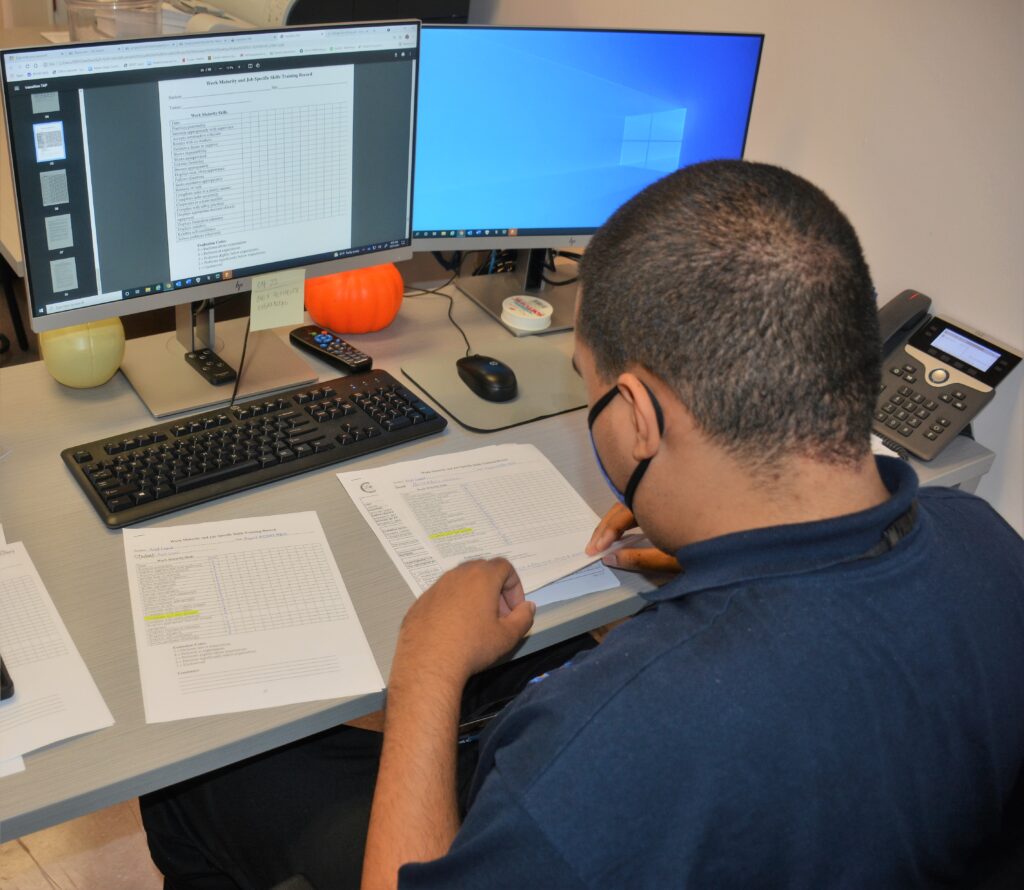
Carlos Instituted a Career Educational Program to Empower Students with Special Needs
In 2015, Carlos launched Project Victory (Vocational, Instructions, Community, Training, Opportunities for Youth), a partnership with Miami Dade County Schools (MDCPS), to help students with disabilities gain marketable job skills to help them transition from school to the workplace. Project Victory is a School-To-Work Transition Program designed for students with disabilities who are high school seniors enrolled in an Exceptional Student Educational Program and are pursuing a Special Diploma. The project targets students ages 16 to 22 who will benefit from full time career exploration in a business setting.
At the Public Defender’s Office Project Victory training hub, MDCPS’ students receive comprehensive vocational training internships in operational support departments throughout the Public Defender’s Office. These internships have been designed to help support the students’ career choices and achieve full vocational development. The hands-on trainings provide work experiences and skills that will be transferable after graduation. The goal is for each Project Victory graduate to find a local job utilizing the work skills learned at the Public Defender’s Office. Two graduates of the program have been hired by the Public Defender as full-time employees.
“Removing barriers for employment for individuals with challenges has been historically one of my office’s top priorities. I know that youth with disabilities face uncertain futures in the job market. It was only natural to take stock on these children and create a program for them that invests in promoting inclusion and opportunities in the workplace,” Carlos said of the project.
Gabby’s Room
Carlos also established “Gabby’s Room,” a Public Defender Office’s instructional workroom with the latest in technology in collaboration with MDCPS. This room is named after Gabby, the very special daughter of a current and former employee. Gabby was born with congenital challenges that affected her mobility, vision, and communication skills. While things were often harder for Gabby, with acceptance, patience, and a supportive environment, she was able to achieve and excel in many different areas.
“Gabby’s Room” provides a warm, welcoming and supportive space for Project Victory students and is emblematic of the limitless accomplishments students can achieve with guidance and support. ”I believe that our collective openness and dedication to our children with disabilities shapes strong and resilient employees. To date, the program has maintained steady enrollment of students participating in the program. Each school year new students are welcomed the Public Defender’s vocational training programs that provide more career opportunities for MDCPS students with disabilities and increases their chances to obtain and maintain gainful employment.